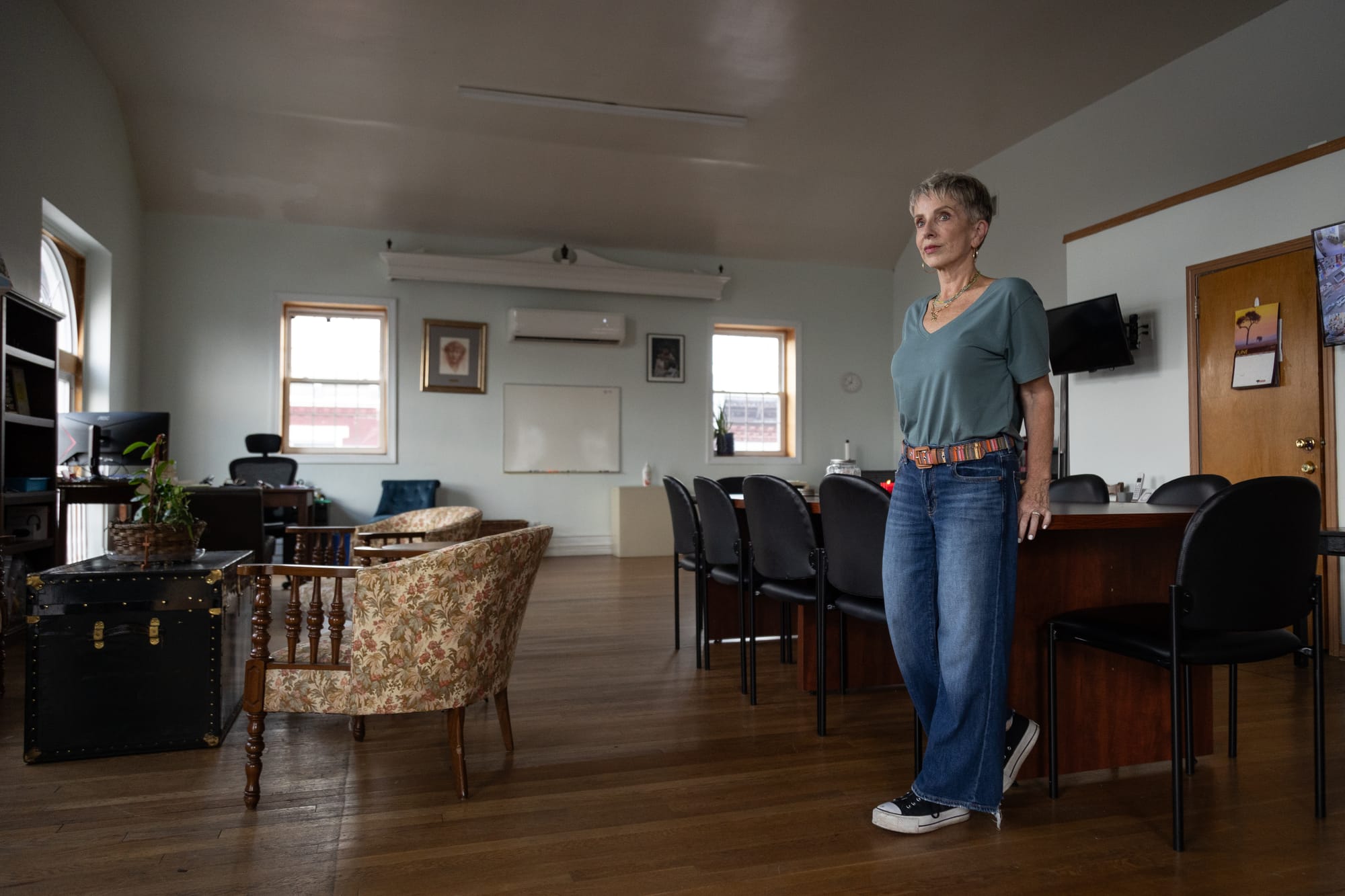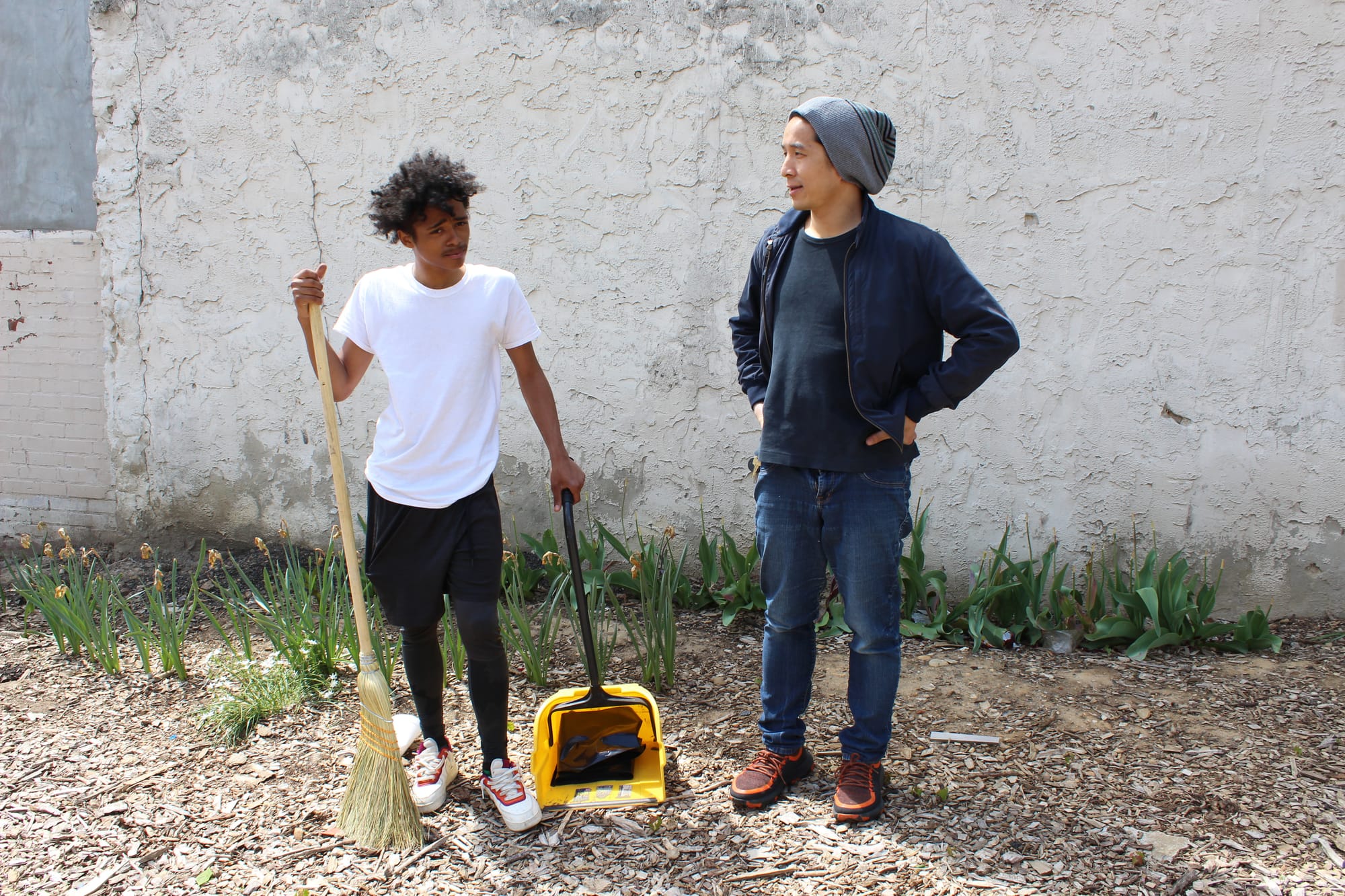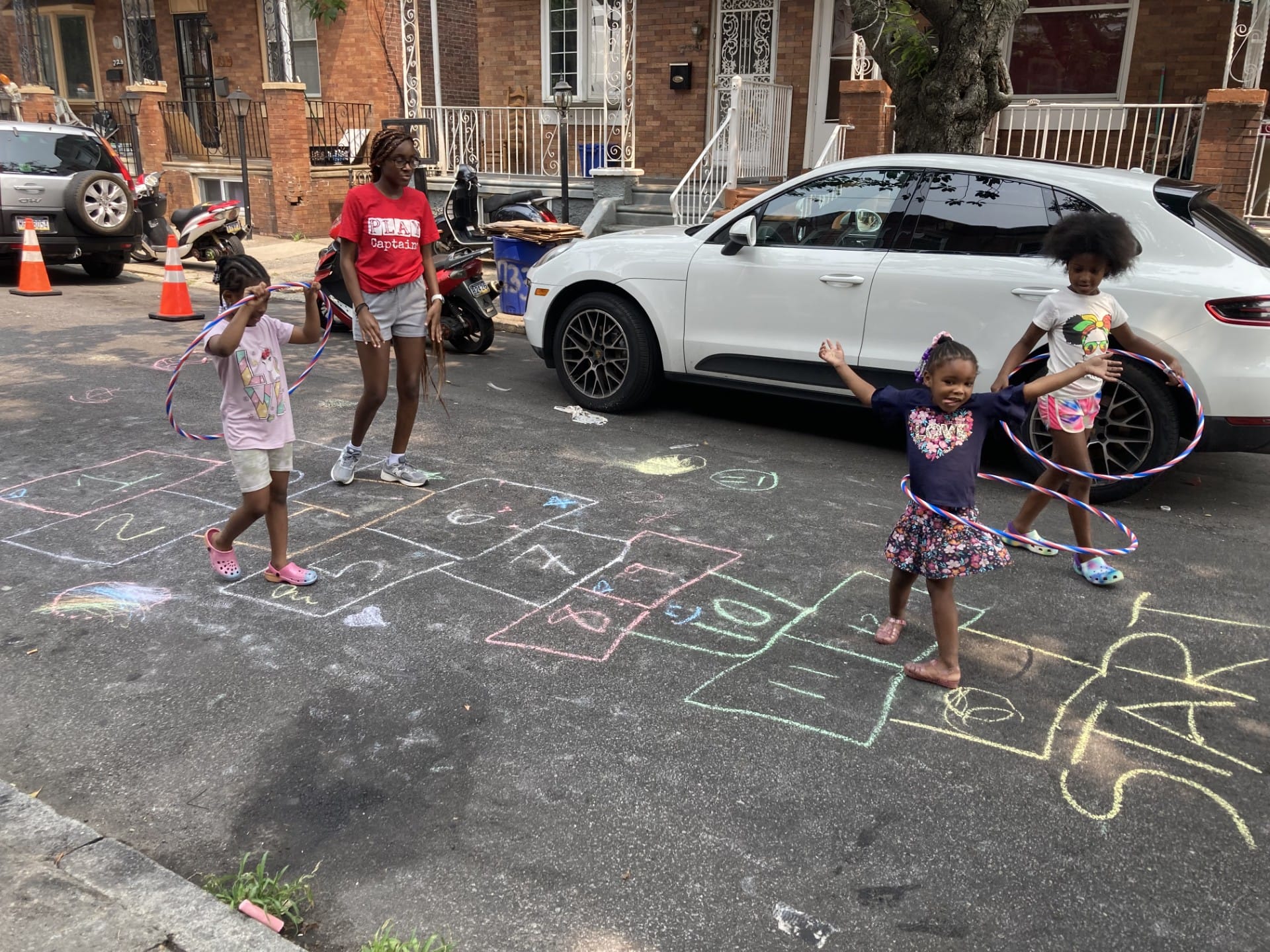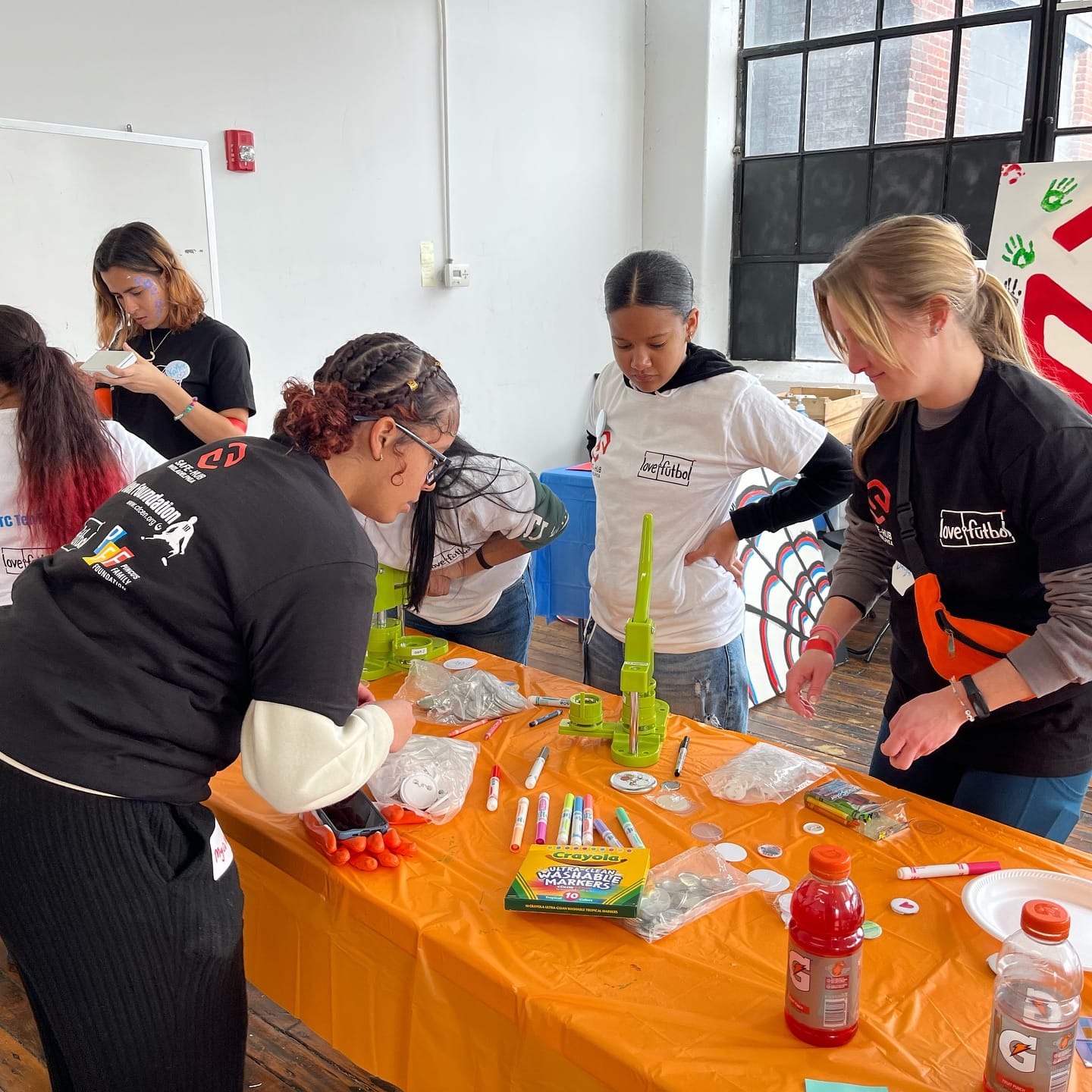What's happening in Kensington: Week of Jan. 19, 2026
MLK Day cleanup, Lost Time comedy show and more.
Three months after the Parker Administration announced the end of the Overdose Prevention and Community Healing Fund, community organizations share their concerns about what comes next.

Update: The City of Philadelphia announced the list of grantees for the new opioid prevention program on July 31st
As the Parker Administration reshapes how the City of Philadelphia funds grassroots responses to the opioid crisis, some community organizations are feeling uncertain about what comes next.
The city’s recent decision to end a significant community-led grant program has caused many nonprofits to consider cuts and changes during the busy summer season, and prompted concerns about whether the city’s new opioid initiative will meet their needs.
In 2022, a nonprofit consulting and support agency called The Scattergood Foundation announced that it was partnering with the city of Philadelphia to launch the Overdose Prevention and Community Healing (OPCH) Fund, using federal opioid settlement dollars. The OPCH fund used a community-led grantmaking process to distribute $3.1 million to 43 organizations across the city in 2024.
Scattergood planned to continue this initiative for the 2025 cycle, but in March, the city announced it would be launching its own grant program. It also told Scattergood to pause operations, according to the nonprofit. The foundation said that by that time, it had already received 90 applicants for the fund’s community granting group.
“I'm disappointed both in the loss of the participatory aspect and the foundation's role in this,” said Joe Pyle, president of The Scattergood Foundation. But he said he recognizes that the mayor and her administration wanted to have more control over grant distribution.
In March, the city announced its new grant program for opioid prevention nonprofits, and said it would focus on “vetted community organizations making a tangible difference combatting the overdose crisis throughout the city.”
The change has been a hardship for nonprofits, according to Kensington Voice reporting. Several previous grantees were not invited to apply for the new round of grants. Those who were say the invitations came far too late to allow for effective summer planning.

Groups told KV they had to reduce their hours, hire fewer staff, and cut down on programming because they couldn’t rely on this funding.
“So that’s a problem,” said Dianne Hoffman, executive director of a Kensington resource center called Mother of Mercy House.
The Office of Public Safety has not announced who will receive funding from the new initiative.
“Our [community lunch] program is year-round, so it will be very tight. We may have to stop it for a couple of months,” she said. “So I'm not really sure how that's going to look.”
There were two types of grants awarded through the original OPCH fund: program grants, which provided $100,000 to support staff time and specific program-related costs, and capacity-building grants, which provided $20,000 to support a wide range of operational and programming costs.
The city’s Office of Public Safety confirmed that all prior program grantees were invited to apply for the new city-run grant, but did not specify whether capacity-building grantees received invitations.
Kensington Voice spoke to all five of the 2024 capacity-building grant recipients, which included Operation Save Our City, Klean Kensington, Angels In Motion and Socks for the Streets. All of them said they did not receive an invitation to reapply.
“I have not been asked or told about it,” said Jeremy Chen, executive director of a Kensington youth-serving organization called Klean Kensington.
“We were getting 20K, for us that was a nice chunk,” he said. “If we run out of money, we have to stop doing our work.”

And invitations to apply didn’t come until early May – five months later than they did under the Scattergood process.
Multiple community groups who did receive an invitation to reapply, such as Fab Youth Philly, say that the shifted timeline made it harder for them to plan for summer programming.
Executive director Rebecca Fabiano was informed that funds would be distributed to awardees in July. She was notified on July 3 that Fab Youth Philly was awarded the city's grant. But she said the timing doesn't work for organizations that run summer programs from June to August, and need to hire staff as early as May or June.
“It absolutely impacted planning for summer and just thinking about who we're going to serve,” she said.
She decided to apply for the new city fund, but didn’t have those dollars to lean on while making summer hires.
“Which meant less kids getting jobs in Kensington,” she said.

The Parker administration’s new $3.6 million program is funded by the City of Philadelphia General Fund, which also covers a wide range of city services like the sanitation and fire departments. Unlike the OPCH fund, the city says this program does not use federal opioid settlement dollars, which came out of lawsuits between cities and pharmaceutical companies.
There has been considerable contention about how federal opioid settlement funds are spent in Kensington, and residents who were part of Scattergood’s grantmaking process said they appreciated having a say in where those dollars go.
Some groups expressed concern about the City being the sole deciders of which groups receive funding.
“There needs to be some transparency on what’s going on,” said Jennifer Malazita of Socks for the Streets.
The nonprofit is based outside of the Kensington neighborhood, but serves the community with socks, hot food, hygiene supplies and resource connections for people experiencing homelessness and addiction. The first grant the organization had ever applied for was through the OPCH fund, and it won twice in 2023 and 2024.
According to OPS Spokesperson Jennifer Crandall, the city intends to continue support for prior OPCH grantees through the new grant.
“In FY26, this fund aims to fulfill commitments made to previous OPCH fund grantees while OPS rolls out next year's program,” Crandall wrote in an email.
Some of the OPCH grantees, such as Fab Youth Philly and Safe-Hub, have also been part of another program previously funded by opioid settlement dollars – the Kensington Community Resilience Fund (KCRF),.
In 2021, Scattergood partnered with the Bread and Roses Foundation to establish the resilience fund, which precedes the OPCH fund. That initiative follows a participatory process that Scattergood developed via another program, called the Community Fund for Immigrant Wellness.
Through the KCRF, Scattergood has awarded $760,000 to many organizations in the neighborhood since 2021.
Like the OPCH fund, the KCRF fund was supported by federal opioid settlement dollars beginning in 2022.
In its first two years, with the city’s support, it distributed $200,000 each year. In 2023 and in 2024, it provided $360,000 each year, totaling $1.12 million in total funding distribution over four years.
Now it will be funded by Scattergood and other philanthropies, and at a significantly lower funding rate, according to Pyle.
The city confirmed that this initiative is “funded by philanthropic entities.” Representatives declined to elaborate on why opioid settlement funds are no longer being used.
The foundation will continue to fundraise for KCRF through private philanthropy and will maintain the participatory structure of a hired community board to review grant applications.
Pyle says that Scattergood has continued to prioritize community input via its Community Fund for Immigrant Wellness as well as the overdose prevention fund. Starting in fiscal year 2026, 40% of the foundations' grant dollars will go toward the participatory process.
“Our board is incredibly committed to lifting up the community voice for what's important in their community.”

Organizations have expressed hope that the city will continue to support them in the same ways that Scattergood has. Some also hope that the city will continue to invest in harm reduction.
Safe-Hub Philadelphia is among the organizations that were invited to apply for the city’s grant, and were selected.
During the summer, the organization hosts back-to-school drives, which were previously supported by donations and through Scattergood's OPCH fund grant.
The organization had to consider alternate plans while they waited to hear back from the city about whether they'd receive funding under the new program, said executive director Elizabeth Clinton.
According to Clinton, community development organizations like Safe-Hub Philadelphia, out-of-school programming for youth and harm reduction organizations are all essential pieces of a comprehensive solution.
“As a nonprofit that does support these youth and community development, we can’t solve everything,” she said. “I hope we continue to listen to our neighbors.”
The city told Kensington Voice it would make a public announcement about the recipients of the new grant program “shortly.”
Free accountability journalism, community news, & local resources delivered weekly to your inbox.